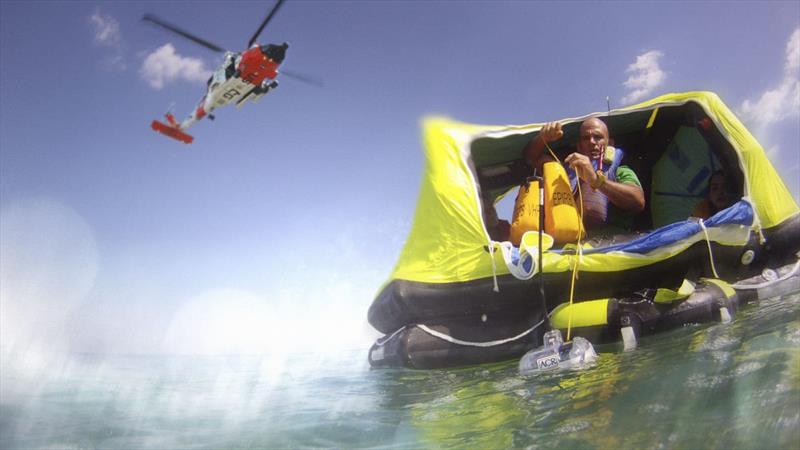
ACR Electronics and Ocean Signal develop next-gen EPIRBs ahead of IMO's 2022 mandate
by ACR Electronics 24 May 2022 06:35 PDT

New AIS EPIRBs by ACR Electronics and Ocean Signal © ACR Electronics
Safety specialists ACR Electronics and Ocean Signal have announced the development of next generation EPIRBs which meet upcoming standards and incorporate more features to significantly enhance the chance of rescue in an emergency.
Introducing integrated AIS (Automatic Identification System) within their EPIRBs for the first time in conjunction with further new technology, ACR and Ocean Signal will launch the advanced beacons this year ahead of the enforcement of new updated IMO (International Maritime Organization) Maritime Safety Committee EPIRB regulations.
AIS EPIRBs will offer both recreational and commercial users the extra reassurance that other nearby vessels will be notified in an emergency, in addition to the beacon's traditional capabilities to transmit a 406 MHz distress signal via the Cospas-Sarsat satellite system to contact global rescue services.
Effective from July 1, 2022, the new IMO rules state that vessels under SOLAS regulations will have to fit a new EPIRB with an internal AIS locating signal and an internal GNSS receiver, along with the 406 MHz and 121.5 MHz transmitters, when current devices are due for replacement.
Recreational boats and other non-SOLAS vessels can continue to install the EPIRBs permitted under their national regulations, with many countries expected to enforce the IMO AIS EPIRB mandate in one to two years' time due to the life-saving benefits offered by these new beacons.
The IMO updated its EPIRB requirements in June 2019 to instigate essential improvements in performance and design of one of the most important safety devices carried onboard by a range of recreational and commercial vessels.
EPIRBs (Emergency Position-Indicating Radio Beacons) are installed on a vessel for activation in a life-threatening emergency, such as sinking, collision and accident. Using the 406 MHz frequency and the Cospas-Sarsat satellite system, the devices have saved thousands of lives, but recovery by rescue services may be delayed, especially in remote ocean areas.
Introducing the AIS locating signal ensures a signal will also be received by all vessels and aircraft equipped with AIS in the vicinity, enabling them to respond with immediate assistance.
Further new standards for EPIRBs enforced by the IMO make a GNSS receiver mandatory to improve the accuracy of the location provided to the rescue services, whilst also requiring an infrared light, as well as visible light, to facilitate rescue in poor visibility or at night.
The combination of an accurate location received via the Cospas-Sarsat satellites and an AIS signal from the EPIRB will enable Search and Rescue authorities to direct search efforts via satellite communications to the area of the incident, whereupon the ships own AIS equipment will enable them to locate the EPIRB, thus effecting a speedier rescue in remote locations.
Mikele D'Arcangelo, Vice President of Global Marketing and Product Management for ACR Electronics, said: "We are delighted to confirm that ACR Electronics and Ocean Signal are in the final stages of developing and testing next generation EPIRBs which will offer much more than the newly mandated technology. The feedback and demand from our customers about the features they want are clear, so we have listened and incorporated innovations within our new EPIRBs that will set new standards in the industry. These beacons will meet all regulatory requirements and offer the leading EPIRB solution for all vessels.
"EPIRBs have always been effective at alerting the rescue services to an emergency via satellite, but they were not good at notifying other vessels nearby. AIS changes this and is a feature that is of benefit to recreational vessels, as well as SOLAS ones, in that it enables you and other vessels nearby to aid in the rescue.
"As leading safety specialists and beacon innovators for many years, ACR and Ocean Signal emphasize to all boat owners and operators that EPIRBs are a vital element of your safety kit. For those people affected by the IMO AIS EPIRB mandate and for any boaters who want the additional reassurance of AIS or to ensure they meet future regulations, our latest EPIRBs will be ready for the July 2022 deadline. Our existing EPIRBs will continue to be approved and available for use in applications that do not have to comply with the new IMO requirements."
For more information on ACR Electronics beacons and other safety equipment, go to www.acrartex.com.